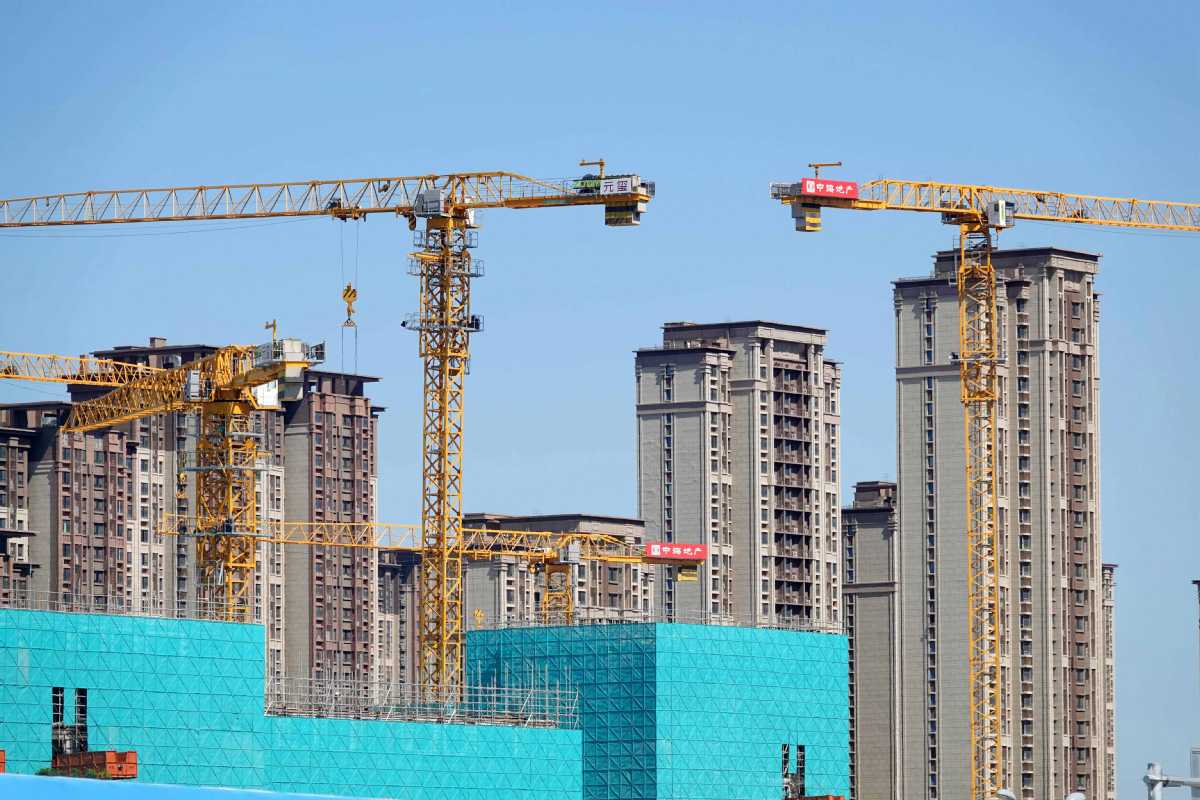New measures set to revive realty sector
Source:China Daily Release time:2024/10/18

A property project under construction in Beijing. TANG KE/FOR CHINA DAILY
China has rolled out new policy measures to rejuvenate the shaky property sector, with expanded funding for troubled property developers and renovation of an additional 1 million homes high on the agenda.
Analysts said this will shore up sentiment among homebuyers and investors, and facilitate an upturn in home sales.
Noting that the real estate industry is a crucial driver of the Chinese economy, analysts said a swift transition from decline to stability will better help the world's second-largest economy achieve its annual growth target of around 5 percent.
Ni Hong, minister of housing and urban-rural development, said on Thursday that the Chinese real estate market has seen broad-based stability since October, particularly in major cities.
China will expand its "white list "program, which allows unfinished housing projects and developers to access credit, with the loan quota under this initiative set to reach 4 trillion yuan ($561.8 billion) by the end of the year, Ni said.
Policymakers are working to include all qualified real estate projects in the "white list" program, ensuring that eligible projects can access the necessary financing, Ni said at a news conference.
The measures are the latest in a series of high-level government policy announcements aimed at bolstering the economy.
Under the "white list" mechanism launched in January, local authorities are recommending financial institutions to real estate projects eligible for financial support.
As of Wednesday, the total amount of loans approved for white-listed real estate projects reached 2.23 trillion yuan, and this is expected to double to over 4 trillion yuan by the end of 2024, according to data from the National Financial Regulatory Administration.
The increased financing support for qualified "white list" projects will empower developers to fulfill their delivery commitments, which is essential for rebuilding consumer confidence in the housing market, said Yan Yuejin, vice-president of the Shanghai-based E-House China R&D Institute.
However, with a sizeable credit line for white-listed projects, the actual scale of approved and realized financing remained modest previously, analysts said.
The doubling of the financing scale signifies the country's efforts to resolve the obstacles that previously hindered the translation of "white list" approval into realized funding and alleviate the financial strain on troubled developers quickly, said Dong Ximiao, chief researcher at Merchants Union Consumer Finance.
Apart from ensuring timely home deliveries, the government has also introduced a new initiative to stimulate effective demand in the real estate market.
Chinese cities will renovate 1 million more homes known as urban villages or dilapidated homes, and residents will receive money to buy new apartments, Ni said.
The new measure primarily targets the most ready-to-implement projects, where increased policy support can accelerate the process. In particular, local governments will be allowed to finance these programs by issuing special bonds, Ni said.
This influx of new demand from the renovation program will play a crucial role in addressing the imbalance between supply and demand in the housing market, said Wang Qing, chief macroeconomic analyst at Golden Credit Rating International.
In 2023, the total sales area of commodity housing reached 948 million square meters, equivalent to around 9.48 million units. From January to August 2024, the sales area of commodity housing declined by 25 percent year-on-year. It is estimated that the full-year 2024 commodity housing sales area will reach 711 million sq m, equivalent to around 7.11 million units, Wang said.
The new policy will create some 1 million units of housing demand and account for around 14 percent of the estimated 2024 housing sales area, which is a significant contribution to the market, Wang added.
The number of homes in urban villages that require redevelopment in 35 major cities has reached 1.7 million units. This figure is likely to be even higher after including the needs of other cities. The renovation programs could be expanded should the situation call for it, Ni said.








